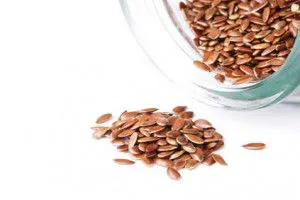By now, you have probably heard about the many benefits of omega-3 fatty acids, including a wealth of benefits to your cardiovascular system.
However, there is some debate as to whether it is better to get omega 3s from seafood sources, such as fatty fish, or from plant sources, such as seeds.
While the research is mixed at this point, there are notable links to cardiovascular benefits from the omega-3s in plant sources.
Omega-3 fatty acids – from all sources – have been linked to lowering triglycerides in the blood, reducing system wide inflammation (which can lead to a host of chronic ailments), improving the symptoms of depression, boosting cognitive function, and even potentially helping to reduce the risk of both Alzheimer’s disease and ALS.
The type of omega-3 fatty acid found in plant sources, including a variety of seeds and nuts, as well as certain vegetables including kale and spinach, and the algae spirulina, is alpha-linolenic acid (ALA). A review performed by Harvard Medical School, which included 251,049 individuals, associated an intake of ALA with a 14 percent lower risk of heart attacks and other cardiovascular incidents.
A body of research has also found benefits from seafood sources of omega-3 fatty acids. However, the authors of a 2012 study of just under 70,000 individuals, published in JAMA, summarize, “treatment with marine-derived omega-3 polyunsaturated fatty acids (PUFAs) for the prevention of major cardiovascular adverse outcomes has been supported by a number of randomized clinical trials (RCTs) and refuted by others.”
While more research still needs to be done comparing plant omega-3s and seafood omega-3s, there are many reasons to make plant sources of omega-3s part of your healthy diet.
One great example is flax seeds. These little seeds, along with containing a wealth of omega-3s, contain mucilage, a water soluble form of fiber that can help the small intestine to absorb nutrients.
Flax seeds also contain lignans, polyphenols which have fiber, antioxidant and phytoestrogen properties. Lignans in flax seeds have been linked to potentially combating certain cancers, including breast and prostate cancers.

If you’re looking to boost the amount of omega-3s in your diet, and for many other health reasons, both of these types of seeds make an excellent addition.
-The Alternative Daily
Sources:
http://www.greenmedinfo.com/blog/plant-omega-3s-reduce-heart-attacks-more-fish-oil
http://media.jamanetwork.com/news-item/omega-3-fatty-acid-supplementation-not-associated-with-lower-risk-major-cardiovascular-disease-events
http://naturalsociety.com/plant-omega-3s-effective-animal-derived-reducing-heart-attack
http://ajcn.nutrition.org/content/100/Supplement_1/453S.abstract
https://www.thealternativedaily.com/5-ways-to-eat-chia-seeds
https://www.thealternativedaily.com/another-reason-consume-foods-rich-omega-3-fatty-acids-decreasing-risk-lou-gehrigs-disease
